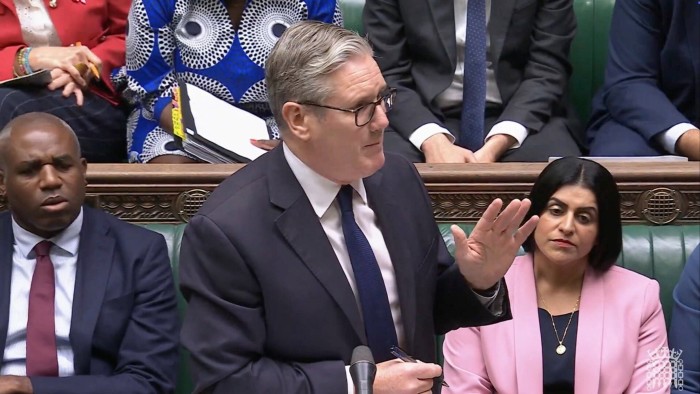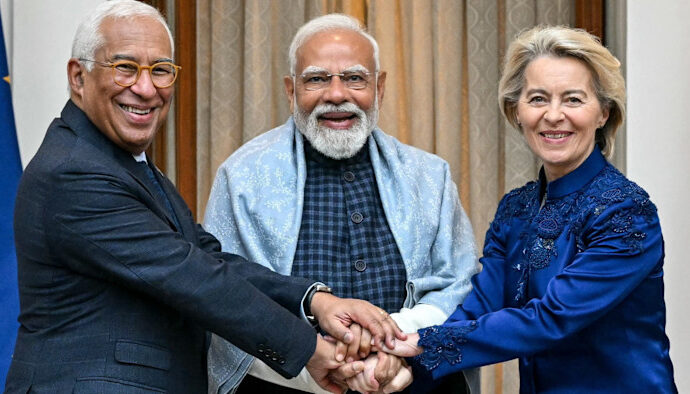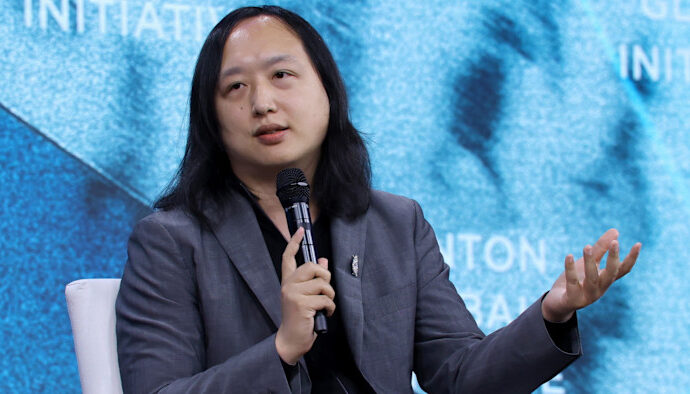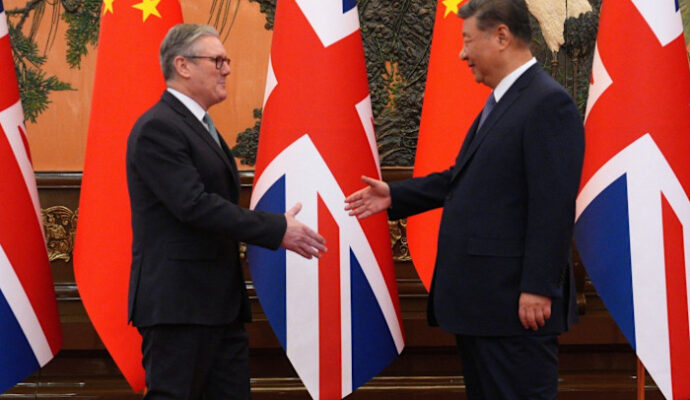
Sir Keir Starmer’s government repeatedly said it wanted a “positive” relationship with China in witness statements needed to support the prosecution of two men accused of spying on MPs for Beijing, which ultimately collapsed.
The three witness statements, which Starmer agreed to publish on Wednesday in a bid to defuse growing criticism over his government’s handling of the case, did state that China was a threat to the UK’s “economic security” but also repeatedly sought to “emphasise” Britain’s desire for positive relations.
The collapse of the case last month has prompted allegations that the Labour government undermined prosecutors by declining to deliver enough evidence to successfully define China as an “enemy” for the purposes of a prosecution under the Official Secrets Act.
Critics have suggested Starmer’s government wanted to prioritise trade with China and to avoid upsetting Beijing.
“It is important for me to emphasise . . . that the government is committed to pursuing a positive relationship with China,” Matthew Collins, deputy national security adviser, said in a witness statement dated August this year.
However, Collins added that the previous Conservative government had “articulated a number of concerns about the long-term challenge that China poses to the UK under the Chinese authorities, including the increasing Chinese espionage threat”.
The Crown Prosecution Service withdrew charges of espionage against Christopher Cash and Christopher Berry — two British men accused of spying on MPs at Westminster — who had both strenuously denied any wrongdoing and were formally acquitted by the court after the case’s collapse.
The CPS said it could not go ahead with the prosecution because the government had refused to say in its witness statements that China was a threat to national security between 2021 and 2023, the time of the alleged offences.
Stephen Parkinson, the director of public prosecutions and head of the CPS, said in a letter last week that it had made “efforts to obtain” stronger evidence from the government “over many months” this year but that none of the witness statements “stated that at the time of the offence China represented a threat to national security”.
Collins submitted his first witness statement in 2023, then two more in February and August this year.
Parkinson cited a Court of Appeal judgment from July last year in a different espionage case that touched on the question of how a country could be considered an “enemy” for the purposes of the offences Cash and Berry were charged under.
Parkinson said the judgment meant the CPS needed further evidence from the government. However, none of Collins’ statements addressed the point directly.
Calum Miller, a Liberal Democrat MP and the party’s foreign affairs spokesperson, said after the publication of the witness statements: “Did emphasising the government’s desire for a positive relationship with China effectively cause this trial to collapse?
“We clearly need a statutory public inquiry to get to the bottom of this whole fiasco.”
The witness statements released on Wednesday detailed some of the allegations against Cash and Berry, including that Berry — who worked as a researcher in China — met top Chinese Communist party officials.
Cash, who was a parliamentary researcher and became a director of a hawkish anti-China group at Westminster, said in one message to Berry that he was “in spy territory now” after discussing one meeting in China.
Cash said in a statement from his lawyer on Wednesday night that he had not “had the daylight of a public trial to show my innocence, and I should not have to take part in a trial by media. At no point did I ever intentionally assist Chinese intelligence”.
“For the avoidance of any doubt, I routinely spoke and shared information with Christopher Berry about Chinese and British politics . . . I believed him to be as critical of and concerned about the Chinese Communist party as I was.”
He said that it was “inconceivable” to him that Berry would have been deliberately passing on information to Chinese intelligence and that he had never received any money for any information he had shared with Berry.
A lawyer for Berry did not immediately respond to a request for comment. He has previously said he has never “had access to or dealings with any classified information, nor has he ever expressed or harboured either any pro-Chinese political sympathies or any form of antagonism towards the interests of the British state”.
The case has shone an uncomfortable spotlight on the UK’s relations with China at a time when the Starmer government is seeking greater inward investment to boost the economy, while also having to balance the UK’s relations with the Trump administration.
On Wednesday, Dominic Cummings, a senior adviser to Boris Johnson when he was prime minister, claimed in an interview in the Times he had been informed in 2020 of a serious breach where China had obtained “vast amounts” of classified government data and suggested it had been covered up by Whitehall.
A spokesperson for the Cabinet Office said: “It is untrue to claim that the systems we use to transfer the most sensitive government information have been compromised.”
Ciaran Martin, former head of the National Cyber Security Centre, the GCHQ’s defensive arm, said it was “categorically untrue” that briefings were given in 2020 “to the effect that the Chinese state had compromised the bespoke systems’” highly classified material.
The claims are nevertheless likely to add to anxiety in Westminster and among allies such as the US. In the coming weeks the Starmer government needs to decide whether to approve a new embassy in London for China.
The prime minister insisted earlier on Wednesday that Collins’ evidence had to follow the position of the previous Conservative government at the time of the alleged spying, arguing that the Tory party had shied away from designating China as an enemy.
Conservative party leader Kemi Badenoch responded that the government’s account of events was “simply unbelievable” and repeated allegations that Starmer was responsible for the collapse of the case because of the government’s desire for closer relations with China.
Downing Street confirmed on Wednesday that Starmer was informed that the case was going to collapse two days before the CPS announced it was dropping the charges, but said it was not the prime minister’s place to intervene.
Starmer’s spokesman said it was for the “CPS to make a decision on a criminal case”.
Following the release of the witness statements a Conservative spokesperson said they showed “the extent of the threat that China poses to the UK, and makes it all the more shocking that the prime minister knew of the imminent collapse of this trial, but did nothing to stop it”.
Parkinson, the CPS head, on Wednesday met the chairs of six parliamentary committees, including the justice and the intelligence and security committees, which scrutinise the government’s actions.
In a joint statement the committee heads said there was “constructive discussion” about the reasons for the case collapsing and they were “considering what further action to take”.


